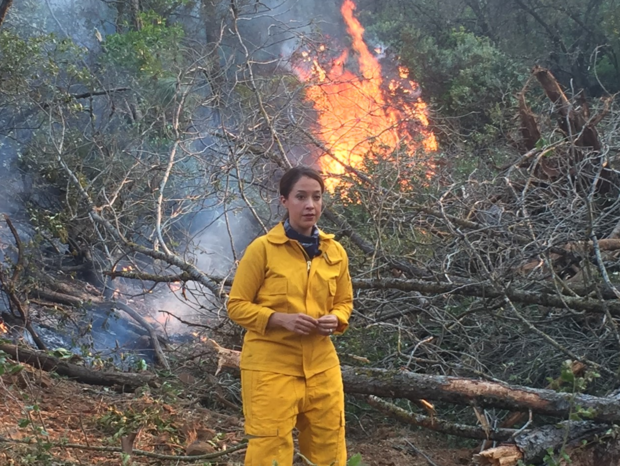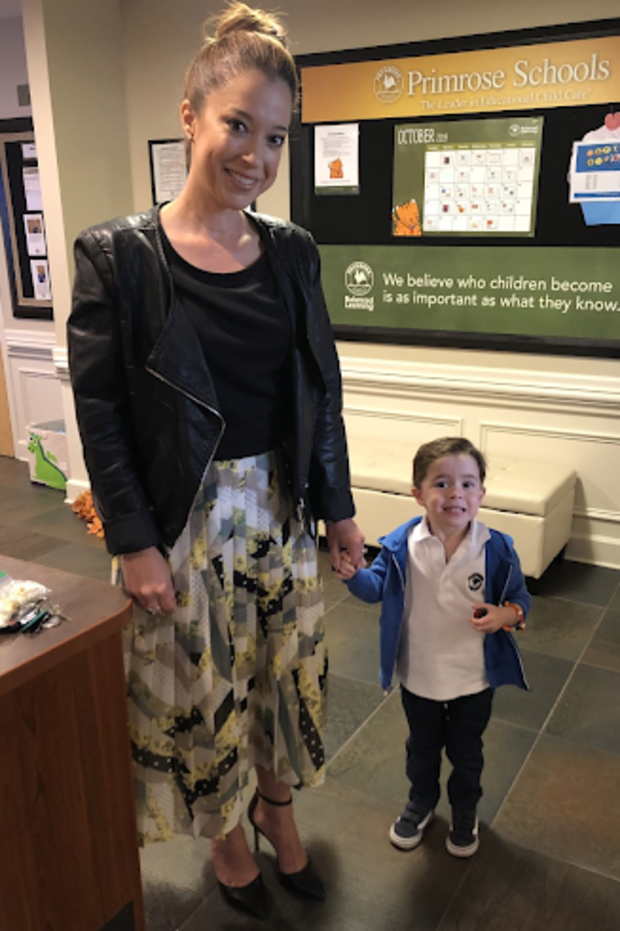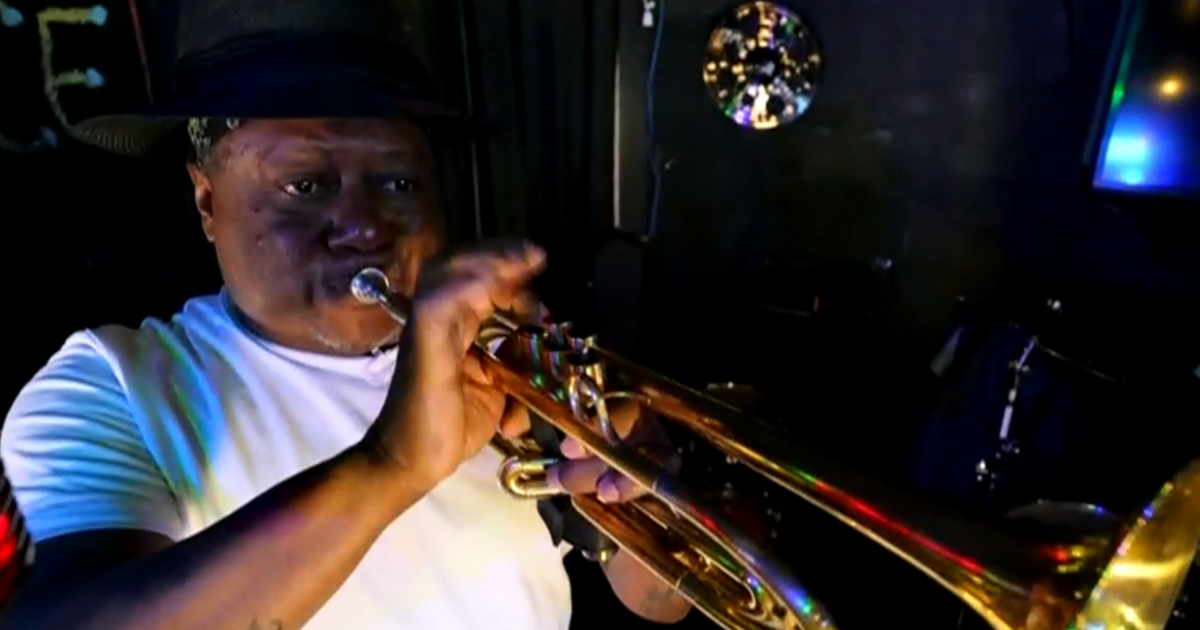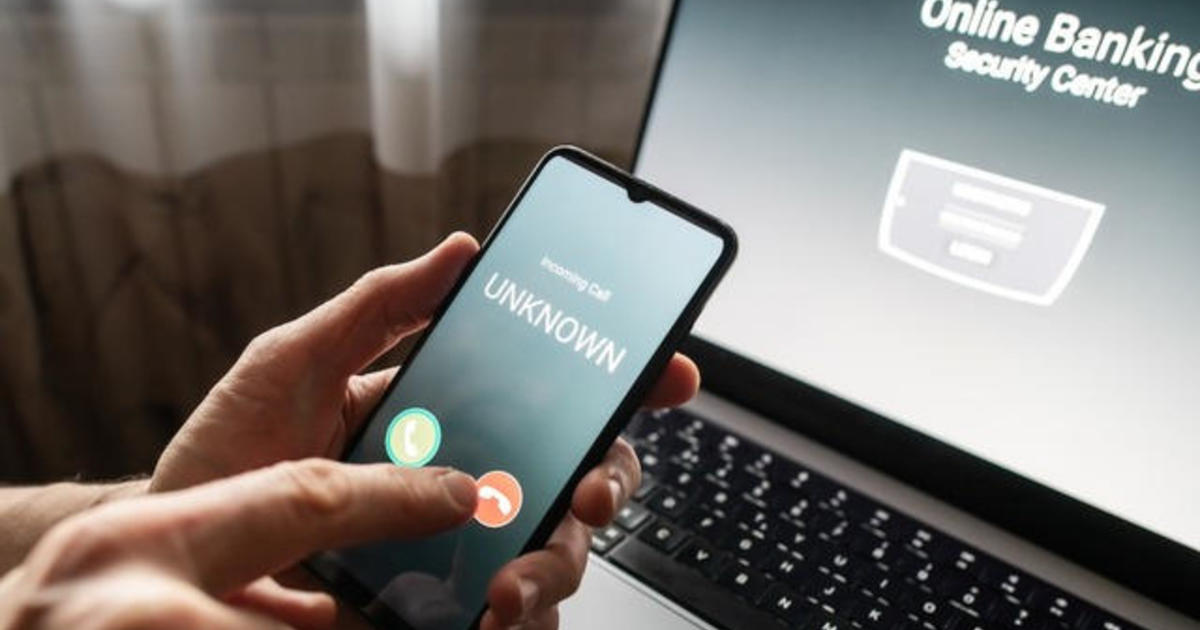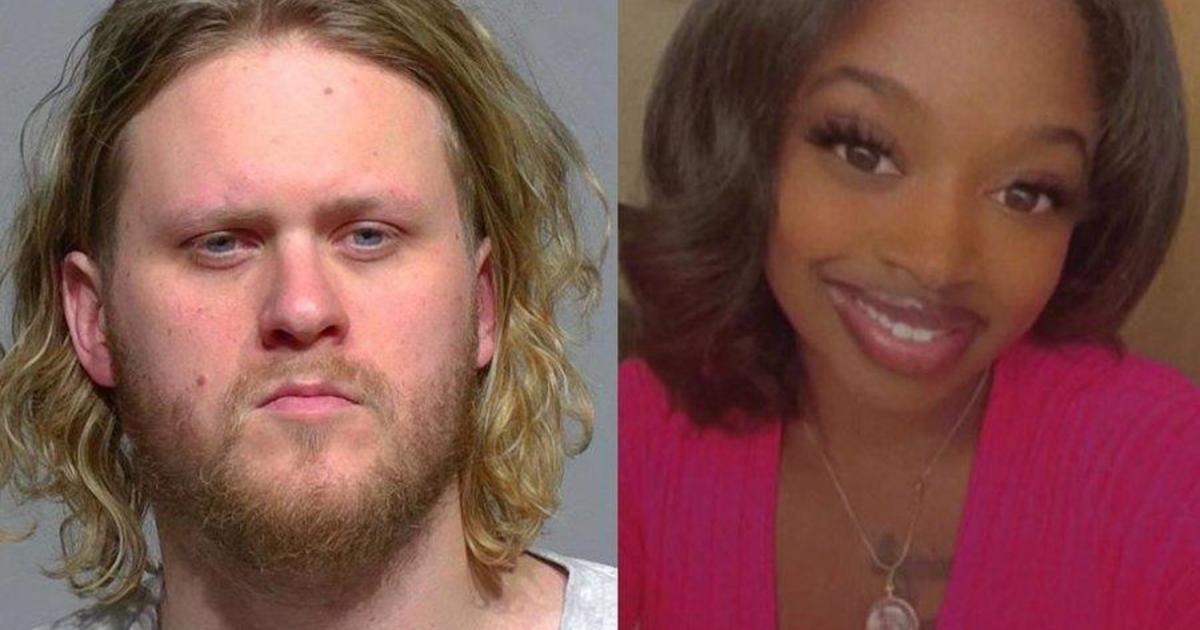"Did I cause this?" Getting past the stigma of miscarriages
Mireya Villarreal is a CBS News correspondent based in Los Angeles.
I can still vividly remember the moment I had my first miscarriage. I was standing on the ridge of a scorched hill on the outskirts of Yosemite National Park in July 2017.
The massive wildfire we were chasing had moved miles away into the mountains, too far to see, but you could still smell its presence. The once beautiful landscape that you read about in books was charred and depressing. That ridge was where I had my first miscarriage.
I had trekked 45 minutes to the top of this hill, and was drenched in sweat, but determined not to give up. The mountain had been scorched by the Detwiler fire in Mariposa County and we were embedded with a group of firefighters. It took us more than 24 hours to convince the crew to let us interview them, and now there was no guarantee we'd make it on air because other news was breaking.
I'd never been to Yosemite before. We didn't grow up poor in South Texas, but we certainly weren't rich. We took family vacations during the summer, but like most Mexican families, it was often in a car four to six hours north of home.
When we got to the top of the ridge, I should have felt a sense of accomplishment. Look what this tiny Hispanic woman from Edinburg, Texas, did: I climbed this mountain with a male production crew, covered a major story that would affect thousands of people's lives, and now I'm going to fight to get this story on CBS Evening News.
Instead, I was cringing in pain. It was excruciating. It was like someone was taking a knife and stabbing my abdomen, right near the C-section scar from my first son.
"You must have eaten a bad burrito for lunch or some bad Mexican food on the way here." I'll always remember those words, uttered by a coworker who had no idea I was pregnant. I knew if I told any of the men on that crew what I was going through, they wouldn't understand. I'd get that look — "Oh, you poor woman" — and then word would get back to my managers. So I kept everything to myself.
When I was pregnant with my 3-year-old, I remember being exhausted the first few months, but I was never in pain. In fact, I never even got nauseous.
I was only nine weeks along this time around. I had told my husband, a few family members, and a few female coworkers. And now, the bleeding wouldn't stop. There were no bathrooms close by and I was worried I'd bleed through several layers of clothing and then everyone would see the pain I was going through on my bright yellow fire-retardant suit. But it didn't. And for that, I'm thankful.
The Blame: "Did I cause this?"
I questioned whether this was really happening. Was I really having a miscarriage in the middle of a wildfire with no one around to help me? No one around to hug me? Can I save the baby? Can I get a doctor to come up to the top of this hill and check me out?
Then the questions all women ask themselves after a miscarriage popped into my head: Did I cause this? Was it my fault?
The assignment lasted another day before the fire retreated into the forest. I bled for five more days and saw my OB-GYN two more times to confirm I'd lost the baby.
I consider myself lucky, though. I didn't have to go through a D&C (dilation and curettage) to clear my uterus. Friends had gone through that and it sounded even more painful than the miscarriage.
In my line of work, the facts are all that matter. But for some reason, in this situation, finding data and stats wasn't easy. Blaming something or someone for the loss isn't that simple. Sometimes, your body can't handle the pregnancy. Sometimes, it's chromosomal abnormalities with the fetus. Food. Trauma. Stress. Sometimes there is no explanation – it just happens.
I've read it all. And the reality is, for every woman it's different. And yet, I still felt ashamed and guilty. I blamed myself then and still do.
I arrived at CBS News in July 2015, and spent the first two years pushing myself to the limit, just to get noticed. I constantly felt the need to prove myself as a journalist, as a female and as a Latina. I was an accomplished journalist when I got here and, yet, I felt small. I'd work weeks without a day off, fly from city to city without even thinking about my health.
On this trip, I started with two days in Arizona covering a flood that swept a family away. With less than four hours of sleep, I jumped on a plane to Northern California to cover the Detwiler wildfire, knowing I was pregnant and not feeling well.
My ambition and selfishness led to this miscarriage. No doctor will ever convince me that's not true. And that's OK.
Getting Help: "I need to talk to someone"
In the beginning, no one could say anything to comfort me. I was angry at my husband for not caring enough. I was angry at the doctor for not having answers. I was angry at my coworkers for going about their days like nothing had happened, even though most had no idea. I had a feeling of loneliness like no one would ever understand what I was going through. More than anything, I was angry at myself.
All these feelings brewed inside me for months before I got help. I was worried about talking to a professional because it would mean I was weak and I had failed. And, as crazy as it sounds, I was worried about asking for help because I didn't want anyone to think it would affect my work. I know now that's not the case.
All of those emotions affected who I was at work and at home. I felt like I was becoming this bitter, jaded person no one wanted to be around. I knew I needed help. I needed to talk to someone.
Through therapy, I've realized that grieving the loss of this child was important, no matter what stage of the pregnancy I was in. But forgiving myself is just as important and something I'm still working on.
I didn't need medication, but some women do. The grief, anger and loneliness can gravitate toward depression, and sometimes drugs are the only thing that can help. Talking about the loss to other women has also been a huge help for me.
Don't get me wrong, I don't need to talk about this every time we grab a drink or get coffee. But I'm no longer ashamed of what happened. I've moved past the stigma to help myself and help others.
Moving Forward: "It's OK to say that"
I've thrown myself into work because it's a refuge for me. I feel safe when I'm out in the field. I feel like I'm my best self. But it is a constant battle. The guilt that comes with the loss is just as painful as the miscarriage.
I still want another child. And, though it took a while, I keep trying.
My 3-year-old son is amazing. I had to see a fertility doctor to make him happen — it took nearly four years. But he brings me so much joy. Being a mother is such a gift. And his unconditional love gets me through some really tough times.
In the past eight months, I've had two more miscarriages. Each time I've been on the road for work. And each time I go through one of them, the same feelings I had during the first miscarriage resurface.
I recently sat down with Alanis Morissette for an interview airing Tuesday. Her songs conjure images of my high school teenage angst. She's 45 years old now and just had her third child. She's open about having several miscarriages and admits this is the third time she's battled postpartum depression.
I asked her if there was ever a time when the pain and the heartache was ever too much. Was there a point when she thought, no, two kids is enough. Without taking a pause, she said absolutely not. She knew the difficulties that came with pregnancy, but she was willing to endure them all for the joy on the other end. She looked off into the distance and said exactly what I had been telling myself all along, "Isn't that crazy?"
Thank you for that Alanis. Thank you.
Someone recently told me, "Why can't you just be happy? Some women never get to have kids. Can't you be happy with what you have? Isn't it enough?"
Here's the thing: No, it's not enough. And it's okay to say that. It's okay to want more for whatever reasons you may have.
I want to have more of that joy in my life. I want to have a bigger family. I want to have more children. And I would go through a hundred more miscarriages if it meant having another child like my 3-year-old.
